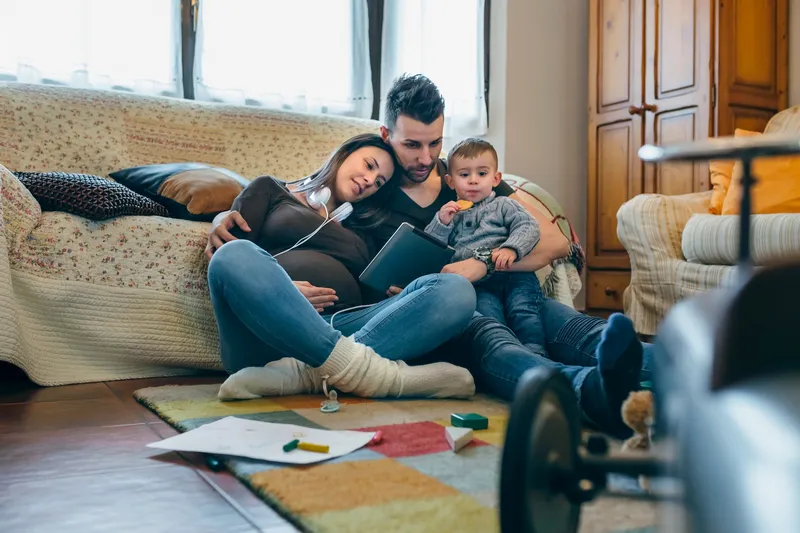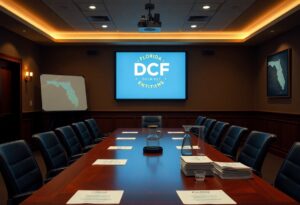Child Welfare Inspections: How Does DCF Investigate?
When Isla opened her door to find a Department of Children and Families (MA DCF) social worker standing on her porch, her heart sank. The visit was triggered by an anonymous report claiming neglect, and now Isla had to face the daunting question: How does DCF investigate child welfare cases in Massachusetts, and what does this mean for her family? As she listened to the social worker explain the process, fear set in—how could she prove her home was safe and her children were well cared for when DCF seemed to assume the worst from the start?
Isla’s story is not uncommon. Families like hers often face MA DCF scrutiny due to misunderstandings or unfounded reports. This blog will walk you through how MA DCF investigates child welfare cases in Massachusetts, what you can expect during this process, and how to protect your family. Continue reading to learn the steps involved and how to navigate this difficult situation.
What Starts a MA DCF Investigation?
A MA DCF investigation starts when a report of suspected child abuse or neglect is made. These reports can be anonymous, but certain professionals, known as mandated reporters, are legally required to notify MA DCF if they suspect a child is in danger. This group includes teachers, doctors, social workers, and others who regularly interact with children.
MA DCF must decide whether to take action based on the information provided. The initial screening determines if the case will be “screened-in” for further investigation or “screened-out” if the concerns do not meet DCF’s criteria. This step is crucial in ensuring that resources are focused on the most serious cases.
What Happens During a MA DCF Investigation?
The primary goal of a MA DCF investigation is to assess the child’s safety and well-being. The MA DCF investigation process can be overwhelming for families, especially under intense scrutiny. Understanding what happens during this process can help alleviate some of the anxiety.
What is the MA DCF Screening Process?
The MA DCF screening process is the first stage of the investigation. During this stage, DCF gathers detailed information from the person who filed the report and may reach out to others who know the child, such as teachers or doctors. They also review any past interactions the family may have had with DCF or other child protection services.
If DCF finds the report credible and concerning, they will “screen-in” the case for a full investigation. This initial step is critical because it determines whether further action will be taken, ensuring that children at risk receive the necessary attention.
How Does MA DCF Conduct a 51B Investigation?
Once a report is screened in, MA DCF initiates a 51B investigation, which is more detailed and comprehensive. A social worker will visit the family’s home to interview the child, the parents, and others who interact with the child, like neighbors or school staff. These home visits are intended to assess the child’s safety, the quality of care they receive, and the home’s overall environment.
During the 51B investigation, the social worker might observe how the family interacts and will look for any signs of neglect or abuse. For instance, in Isla’s case, the social worker assessed the condition of her home, observed her children’s behavior, and asked about their daily routines. The outcome of this investigation hinges on the social worker’s findings, which will determine the next steps.
What Are the Possible Outcomes of a MA DCF Investigation?
At the end of the 51B investigation, MA DCF will decide whether the allegations are “supported,” “substantiated concern,” or “unsupported.”
- Supported: This outcome means that DCF has found enough evidence to believe that abuse or neglect occurred. They may continue to work with the family, offering services or taking legal action to protect the child.
- Substantiated Concern: Here, DCF believes that there is potential for abuse or neglect, but the immediate risk to the child is low. They might still monitor the family or offer support services.
- Unsupported: If DCF finds no evidence of abuse or neglect, the case is closed, and no further action is taken.
What Can Families Do If They Disagree with a MA DCF Decision?
If you feel that DCF made the wrong decision in your case, you have the right to challenge it. You can do this through a Fair Hearing, where an impartial party reviews your case to see if DCF acted appropriately.
How Do You Request a MA DCF Fair Hearing?
To request a MA DCF Fair Hearing, submit a written request within 30 days of receiving DCF’s decision. Your letter should explain why you believe the decision was wrong and include any supporting evidence.
- Step 1: Write a letter to DCF explaining why you disagree with the decision and ask for a Fair Hearing.
- Step 2: Include any supporting documents, such as letters from teachers or doctors, that can help your case.
- Step 3: Prepare for the hearing, where you can present your evidence and call witnesses.
During the hearing, an impartial officer will review all the evidence and make a decision. Preparing well increases your chances of success, so consider seeking legal help.
How Can Legal Representation Help During a MA DCF Investigation?

Having a lawyer during a MA DCF investigation can be crucial. A lawyer can help protect your rights, explain the process, and improve your chances of a favorable outcome.
Why Should You Hire a MA DCF Defense Lawyer?
A DCF defense lawyer can guide you through the investigation process and advocate for your family. They can help ensure that DCF follows the law and that your rights are upheld.
- Protection of Rights: Your lawyer will ensure that DCF follows all legal procedures and protects your rights during the investigation.
- Guidance Through the Process: With a lawyer, you’ll have someone to explain each step, from initial interviews to possible court proceedings.
- Improved Outcomes: Families with legal representation often achieve better results, such as having cases closed or findings overturned.
What Are the Risks of Not Having Legal Representation?
Without an attorney, you may miss critical opportunities to defend your case. This can lead to unfavorable outcomes, such as continued MA DCF involvement or losing custody of your children.
- Missed Opportunities: Without an attorney, you might not know when to challenge DCF’s actions or how to gather the evidence needed to support your case.
- Increased Stress: The process can be mentally exhausting, and without legal help, you may feel even more overwhelmed.
- Risk of Unfavorable Outcomes: Families who do not seek legal counsel are more likely to face negative outcomes, such as having a “supported” finding upheld or losing custody.
Statistics show that legal representation can significantly affect the outcome of DCF cases. In Massachusetts, families with lawyers are more likely to successfully challenge DCF findings and avoid long-term involvement with the department. Hiring an experienced DCF attorney protects your family and creates a better future.
Key Takeaway
Understanding how DCF investigates child welfare cases in Massachusetts can help families navigate the challenges of a DCF investigation. Families can better prepare and safeguard their rights by knowing the steps involved, from the initial report to the possible outcomes. Legal representation ensures the process is fair and fully considers the family’s side of the story.
Staying informed about DCF procedures is vital as they continue to oversee child protection. Early legal support can make a significant difference, offering peace of mind and a stronger defense. Families who prepare are better equipped to handle a DCF investigation effectively.
In this situation, it’s advisable to seek legal representation from a qualified attorney, like those at the Law Office of Kevin Seaver, who can advocate for your rights and guide you through the complex process of a DCF investigation.
Remember that the ultimate goal of DCF is to ensure the safety and well-being of children while supporting families in crisis.
Please note that this article does not create an attorney-client relationship between our law firm and the reader and is provided for informational purposes only. Information in this article does not apply to all readers.
Readers should not rely on this information as legal advice and should seek specific counsel from the attorney based on personal circumstances. Thank you.
Kevin Patrick Seaver is a Massachusetts DCF Defense Lawyer who represents parents against false child abuse allegations.
Massachusetts DCF Defense Lawyer Kevin Seaver has been successfully fighting false child abuse allegations since 1991.






